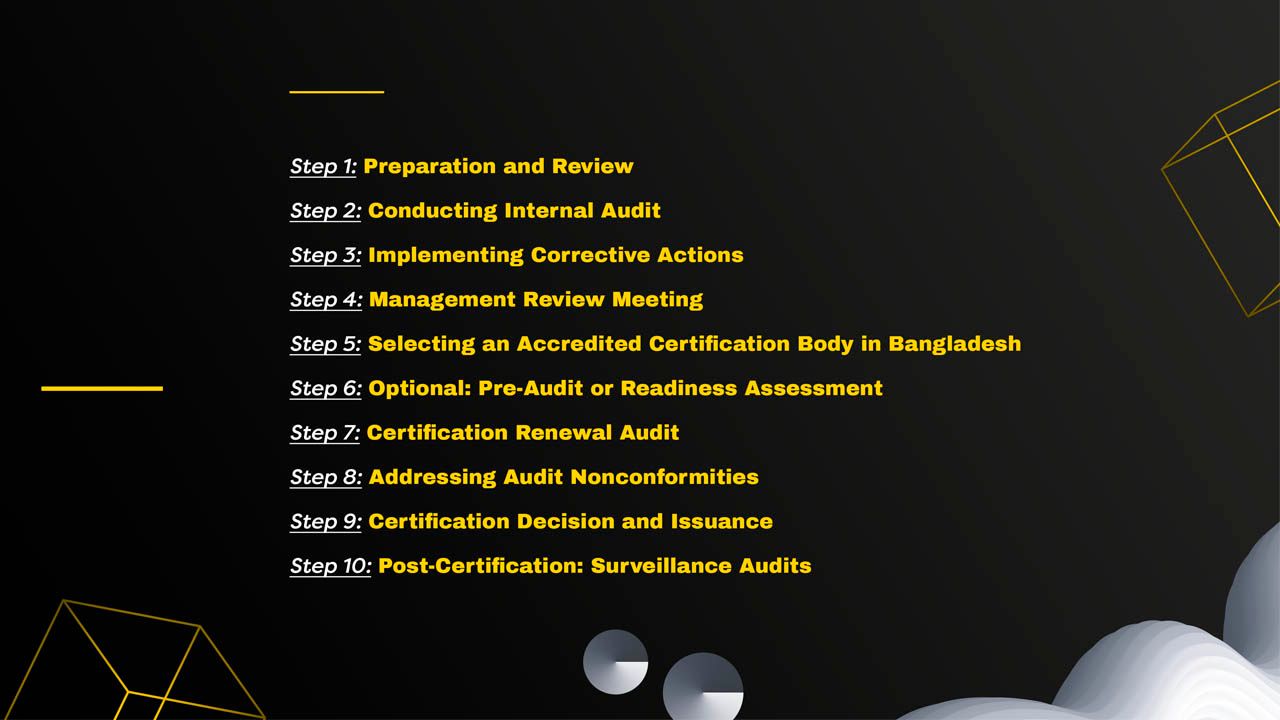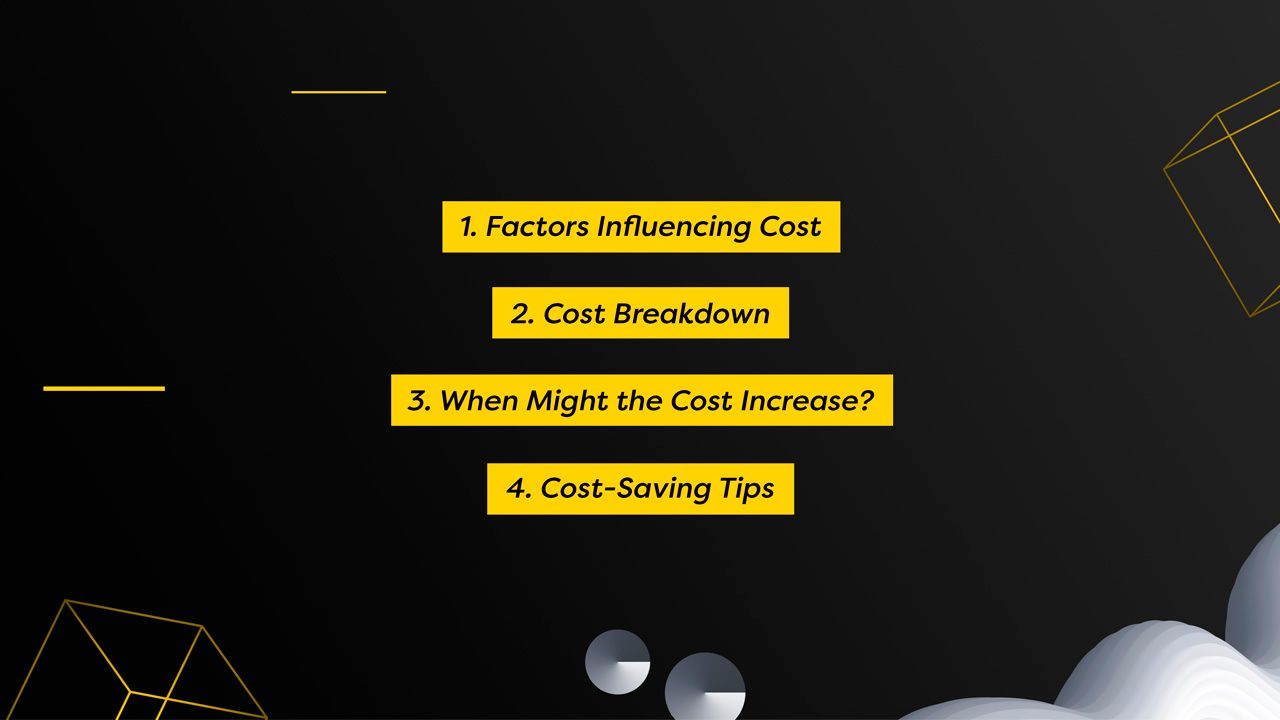
ISO 9001:2015 Re-Certification in Bangladesh: A Complete Guide to Renewal Process, Cost & Requirements
Get ISO 9001:2015 re-certification in Bangladesh with this step-by-step guide. Learn the renewal process, costs, audit steps, and compliance requirements.
ISO 9001:2015 is the world’s most recognized quality management system (QMS) standard. It helps businesses improve performance, reduce risks, and build customer trust. In Bangladesh, thousands of companies across industries hold this certification.
But what happens when your certificate is about to expire? That’s where ISO 9001:2015 re-certification in Bangladesh comes in. It ensures your business continues to meet global quality standards. This guide will walk you through everything you need to know—from preparation to audits, costs, and how to stay compliant long-term.
Is ISO 9001:2015 Re-Certification Similar to New Certification?
Re-certification is very similar to the initial certification process. You’ll go through audits, submit documentation, and demonstrate compliance with ISO 9001:2015 standards. The main difference? You already have a system in place. Now it’s about improving and proving that it still works.
Importance of an ISO-Recognized Certification Body
One key factor in re-certification is who issued your previous certificate. Make sure your original certificate came from a valid certification body listed on the official ISO-certified CB database. If not, your renewal might not be recognized internationally.
Renewal Compliance Essentials
To renew your ISO 9001:2015 certificate in Bangladesh, your business must:
- Review current compliance
- Conduct internal audits
- Fix any gaps or nonconformities
- Pass a certification body audit
- All while continuing to meet ISO’s global standards for quality.
Step-by-Step Process for ISO 9001:2015 Re-Certification in Bangladesh
Whether you're a manufacturing firm, service provider, or public entity, this step-by-step guide will walk you through everything you need to renew your certification smoothly, from initial preparation to post-certification audits.
Each phase helps strengthen your operations, reduce risks, and show clients and regulators that your business is committed to quality.
Step 1: Preparation and Review
Begin by reviewing your current ISO 9001:2015 system. Ask:
- Are all processes documented and updated?
- Have there been any organizational changes?
Identify any nonconformities, gaps, or outdated procedures. This is your chance to fix what’s not working before the audit.
Step 2: Conducting Internal Audit
An internal audit checks if your QMS is still aligned with ISO 9001:2015 standards. Cover all departments and processes. This internal check will:
- Reveal compliance gaps
- Prepare your team for the external audit
Ensure the audit is carried out by trained personnel, preferably independent from the area being audited.
Step 3: Implementing Corrective Actions
If your internal audit finds issues, act on them. Address:
- Root causes, not just symptoms
- Long-term fixes to avoid repeat issues
Document every corrective action taken. This proves your commitment to continual improvement.
Step 4: Management Review Meeting
Management must be involved in assessing the QMS. The review should include:
- Audit findings
- Customer feedback
- Performance against objectives
- Status of corrective actions
This meeting ensures leadership is fully informed and invested in quality performance.
Step 5: Selecting an Accredited Certification Body in Bangladesh
Choose a certification body that:
- Is listed in ISO’s official database
- Has experience in your industry
- Offers transparent pricing and auditing processes
Well-known bodies like Youable are ISO-accredited and recognized for their quality assurance credibility in Bangladesh.
Step 6: Optional: Pre-Audit or Readiness Assessment
Some organizations opt for a pre-audit to catch last-minute gaps. While not required, it can:
- Help reduce audit failure risk
- Clarify expectations
- Improve audit readiness
It’s beneficial if you’ve had significant changes in structure or processes.
Step 7: Certification Renewal Audit
This is the main re-certification audit conducted by your chosen certification body. It includes:
- A thorough review of QMS documents
- Interviews with staff
- Observations of operational processes
The audit may be done on-site or remotely, depending on your certification body’s policy.
Step 8: Addressing Audit Nonconformities
If the auditor finds nonconformities:
- You’ll be given a set timeframe to correct them
- You must submit documented evidence of corrective actions
Once verified, the auditor will proceed with certification approval.
Step 9: Certification Decision and Issuance
After reviewing your audit results and corrective actions, the certification body will:
- Approve your renewal
- Issue a new ISO 9001:2015 certificate valid for another 3 years
This renewed certificate confirms your QMS is still effective and compliant.
Step 10: Post-Certification: Surveillance Audits
To maintain compliance, surveillance audits are conducted annually (or as decided by the certifier). These reviews help ensure your QMS:
- Remains effective
- Reflects any new changes in your organization
- Continues to meet ISO standards
These audits are lighter than full renewals but equally important.
ISO 9001:2015 Re-Certification Cost in Bangladesh
When planning for ISO 9001:2015 re-certification in Bangladesh, one of the most common concerns is cost. While prices vary depending on several factors, understanding the breakdown can help businesses budget wisely and avoid unexpected charges. Let’s take a closer look at what influences the cost and how you can manage it effectively.
1. Factors Influencing Cost
Several elements can affect how much you’ll spend on the ISO 9001:2015 re-certification process:
- Size of the organization: Larger businesses require more audit days, which increases cost.
- Industry type: High-risk industries like manufacturing or pharmaceuticals may need deeper audits.
- System complexity: The more processes and departments you have, the more time the audit takes.
- Certification body reputation: Well-known, accredited bodies may charge higher fees, but they offer stronger credibility and trust.
2. Cost Breakdown
Here’s how the typical re-certification cost is split:
- Certification Body Fees: These include audit, documentation, and certification issuance charges. This is usually the largest portion.
- Travel & Accommodation: If the auditors travel to your location from outside your city, you may need to cover travel and stay costs.
- Internal Preparation Costs: These are the costs for training, internal audits, and staff time spent preparing for the external audit.
- Consulting/Pre-Audit Services (Optional): Hiring an expert or agency to guide you can improve readiness but adds to the budget.
3. When Might the Cost Increase?
There are situations where your re-certification cost could rise:
- Expansion of services or departments
- Adding a new factory or branch
- Significant changes in management or processes
Each of these can affect the scope of your audit and require additional assessment time.
4. Cost-Saving Tips
Good news! You don’t always need to spend big to get re-certified. Here are some ways to cut costs without compromising quality:
- Use in-house resources: Train your own employees to manage QMS updates and conduct internal audits.
- Avoid unnecessary consultants: If your team understands ISO requirements, skip paid consultants.
- Prepare ahead: Keep your QMS active year-round so you don’t scramble (or pay more) during the renewal process.
How to Choose the Right ISO Certification Body in Bangladesh
Your ISO certificate is only as credible as the body that issues it. Choosing a well-accredited and experienced certification body in Bangladesh ensures your re-certification meets global standards and is recognized locally and internationally.
Here’s what to look for:
- ISO accreditation: Make sure the body is listed in the official ISO Certified Bodies Directory.
- Industry experience: Choose a body that has experience auditing businesses in your sector.
- Transparent process: They should clearly explain audit steps, documentation needs, and fees.
- Customer reviews: Feedback from other Bangladeshi businesses can help you gauge their professionalism.
We Youable, take pride in being one of Bangladesh’s trusted and accredited ISO certification bodies. Our expert auditors, structured processes, and ongoing client support have helped countless organizations achieve and maintain their ISO 9001:2015 certification with confidence. We’re committed to quality, transparency, and your long-term success.
Final Thoughts
Staying ISO 9001:2015 certified isn’t just about meeting a standard. It’s about building trust, improving internal processes, and staying competitive in Bangladesh’s growing business landscape. Timely ISO 9001:2015 re-certification helps you avoid business disruptions and shows your clients and partners that you take quality seriously.
To make the process smooth, start early, prepare well, and work with an accredited certification body that understands your industry. Whether you’re renewing for the first time or have done it before, keep quality at the heart of your operations.
FAQs
How long does the ISO 9001:2015 re-certification process take?
Typically, it takes 1 to 3 months, depending on the size and complexity of your organization and your readiness.
Is re-certification mandatory if my certificate is about to expire?
Yes. To stay ISO 9001:2015 certified, you must complete the re-certification process before your current certificate expires.
Can I change certification bodies during renewal?
Absolutely. You can switch to a new accredited body if you’re not satisfied with your current one—just ensure proper transfer of documents.
Is there a grace period for expired ISO 9001:2015 certificates?
No official grace period exists. Once expired, you may need to undergo a full audit instead of a renewal. It’s best to start the process well before expiry.
Comments
Your email address will not be published. Required fields are marked *

ISO 9001:2015 Certification Renewal in Bangladesh: Everything You Need to Know
Renew your ISO 9001:2015 certification in Bangladesh with ease. Learn the steps, costs, and key requirements to stay compliant and competitive.
LATEST POSTS

May 16, 2025



